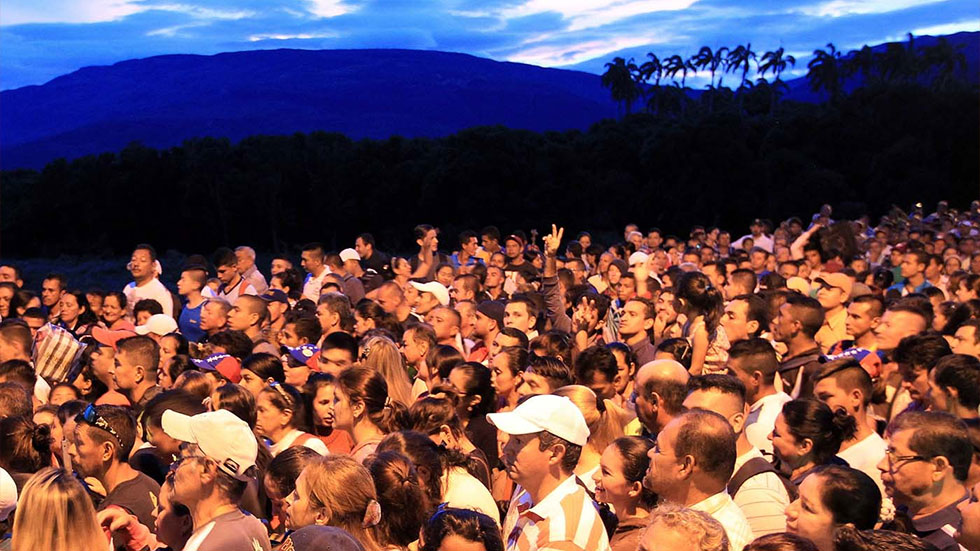Thousands of Venezuelans were welcomed to Colombia by a military band early on Saturday morning as the two countries’ borders were officially reopened after being closed by Venezuela a year ago.
Some people had traveled across Venezuela to queue overnight hoping to cross to buy food and other basics that are in short supply in Venezuela, which is steeped in an economic crisis.
“I came with my family to do some shopping because we can’t find anything to eat,” said Wilmary Salcedo, a 17-year-old engineering student who had traveled some 500 miles (800 km) from the central city of Maracay hoping for rice, sugar and cooking oil.
Venezuela’s stores lack the most basic foods and medicines. Queues of hundreds and even thousands of people are common, and riots and looting are a daily occurrence.
Venezuela’s President Nicolas Maduro abruptly closed the border last August hoping, he said, to protect his country from smugglers and paramilitaries. Critics saw the action as a stunt to shift attention from worsening domestic problems.
Maduro announced the reopening on Thursday, alongside his Colombian counterpart Juan Manuel Santos.
“We’re interested in a new beginning in economic and commercial relations with all of Colombia’s productive sectors,” Maduro said on Thursday. Santos said it would be a “gradual” reopening.
Venezuela and Colombia agree to gradual reopening of border
Five border crossings will be open to pedestrians during the day from 6 a.m. to 9 p.m. (1100 to 0200 GMT).
Colombia’s Foreign Ministry said more than 28,000 people — many of them Venezuelans — had moved across the border in the first few hours that it was open on Saturday.
A representative from Colombia’s Foreign Ministry said 5,000 people had crossed in the first two hours.
The border has for years been a hotbed of smuggling of everything from price-controlled toothpaste and pasta to illegal drugs and weapons. Maduro blamed Colombians, among others, for the country’s crisis and the closure strained relations between the South American neighbors.
Many people continued to cross the border over the past year using dirt paths, shallow river crossings and by paying officials.
(Reporting by Anggy Polanco; Writing by Girish Gupta; Editing by Toni Reinhold and Sandra Maler)


